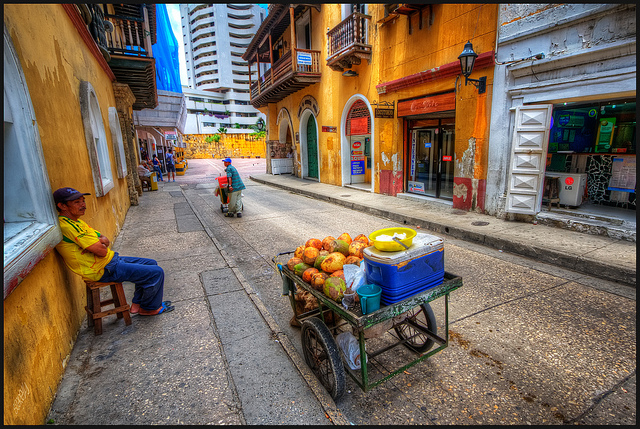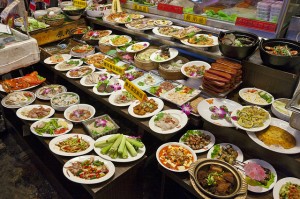
One of the best things about traveling to another country is trying local, authentic cuisine. However, it pays to know a few basic rules so you don’t become one of the 10 million overseas travelers to suffer a bout of traveler’s diarrhea or other foodborne illnesses each year. Luckily, you can protect yourself from foodborne health problems (and spending half your trip visiting restrooms) with these easy-to-follow tips:
1) Know before you go: Understand that the food you eat at home isn’t necessarily “safer” than food abroad; it’s often simply that your body just isn’t accustomed to foreign fare. According to Independent Traveler, one important difference between home-grown and foreign foods is the use of more “natural” fertilizers abroad, which can carry bacteria that could cause intestinal distress. One of the most important measures you can take to avoid getting sick overseas is to research the quality of food in the specific region you’ll be staying in. Visit the CDC’s website for country-specific health information and follow these prompts: Choose your host country, click Stay Healthy and Safe, and finally, select Eat and drink safely.
If you still need advice or reassurance, consult others who have previously traveled to the location (TripAdvisor.com is a great tool for this!). On Call members can even call us for advice.
2) Use common sense: Your best defense against foodborne illness is to use common sense. Keep in mind that some of the advice below will depend on where you’re traveling. Risks in Europe, for example, may be lower than in less developed nations. Here are some safe food habits the CDC suggests you follow while abroad – similar to what you’d follow at home:
- Avoid eating food served at room temperature.
- Don’t eat raw or undercooked meat and seafood. It’s also best to best to steer clear of raw or soft-cooked (runny) eggs.

- Be sure that any dairy you consume is made from pasteurized milk. If there’s no way to be certain, try to pass on it if possible.
- Pass on condiments (such as salsa) made with fresh ingredients — unless you know for sure that the fruits/veggies the condiment is made with have been properly washed.
- Speaking of fruit and vegetables — be wary of any that have not been washed or peeled as harmful bacteria may be lingering on the skin. Salads, for instance, are more likely to be infected than freshly cooked foods. If you’re traveling in an area where drinking water quality may be low, it’s often best to avoid salads and fresh fruits unless you can wash them with uncontaminated water.
- Wash your hands with soap and water for at least 20 seconds before eating or handling food. If fresh water is limited, use antibacterial hand gels or wipes to keep your hands clean.
3) Choose restaurants with care: Though a busy restaurant may mean a longer wait time, it may be worth it when choosing a safe and clean place for a meal. An empty restaurant could be a sign of bad food or an unsafe setting. Another simple strategy is to check your surroundings. If a restaurant is dirty on the outside, there is a good chance the kitchen will be dirty as well.
4) Have street cart smarts: It may be quick, convenient and some of the most authentic fare you’ll find, but it’s sometimes risky to purchase food from street vendors. Take a look at the cart before jumping in line to order — does  it look well-kept? Is it busy? Keep in mind — the fewer the customers, the longer the food may sit before being served. It’s also best to avoid carts where food handlers don’t practice good hygiene such as tying back their hair and wearing protective gloves.
it look well-kept? Is it busy? Keep in mind — the fewer the customers, the longer the food may sit before being served. It’s also best to avoid carts where food handlers don’t practice good hygiene such as tying back their hair and wearing protective gloves.
5) Follow the one-hour rule: Don’t consume any perishable foods that have been sitting out beyond one hour when the temperature is higher than 90° degrees F. This is when bacteria in food can multiply rapidly — and lead to foodborne illness.
Of course, the information above is all to help you make smart decisions. Don’t let worries of eating out while you’re abroad keep you from exploring the local cuisine — after all, food is an important part of a country’s culture! But if you do accidentally eat something that causes you to become ill — (or if you have any other emergency while traveling) — On Call members can call us any time. We’ll assist you by locating a qualified physician, hospital or pharmacy near your location along with any other help you may need.
Safe Travels!
Photo credits:
Street vendor from pedrosz
Fish from Adamakafade
Street food from Tomás Fano


